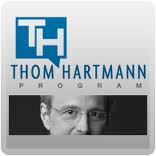 When asked during his confirmation hearing on Wednesday about his position on the Trans-Pacific Partnership, former Exxon Mobil CEO Rex Tillerson - Donald Trump's pick for Secretary of State - said that while he did not personally oppose the agreement, it didn't further America's interests in its current form.
When asked during his confirmation hearing on Wednesday about his position on the Trans-Pacific Partnership, former Exxon Mobil CEO Rex Tillerson - Donald Trump's pick for Secretary of State - said that while he did not personally oppose the agreement, it didn't further America's interests in its current form.
Q: "Do you share his [Trump's] opposition to TPP?"
Tillerson: "I do not oppose TPP. I share some of his views regarding whether the agreement that was negotiated serves all of America's interests the best."
Rex Tillerson is right - the TPP doesn't serve America's interests.
It serves the interest of the hundreds of giant transnational corporations that got to write it behind closed doors without any input whatsoever from the American people.
But what's true of the TPP is also true of America's trade policy as a whole.
For the past few decades, it's strayed far from it's historical purpose which, as Alexander Hamilton argued in his famous 11-point plan for "American-manufactures", was to boost exports and protect domestic industry through tariffs that made foreign manufactured goods less competitive.
Today, American trade policy does pretty much the exact opposite - all in the name of something called "globalization" - and We the People have paid the price through millions of lost jobs and a forty-year-long flatlining of wages.
So-called "free trade" just doesn't work, at least not for America - and Donald Trump isn't the only person to point this out.
Democrats have overwhelmingly opposed every single so-called free trade bill that's ever gone through Congress.
So what WOULD a rational trade policy look like?
Are we stuck with globalization?
Or can we go back to what worked so well for hundreds of years after the Hamilton model?



